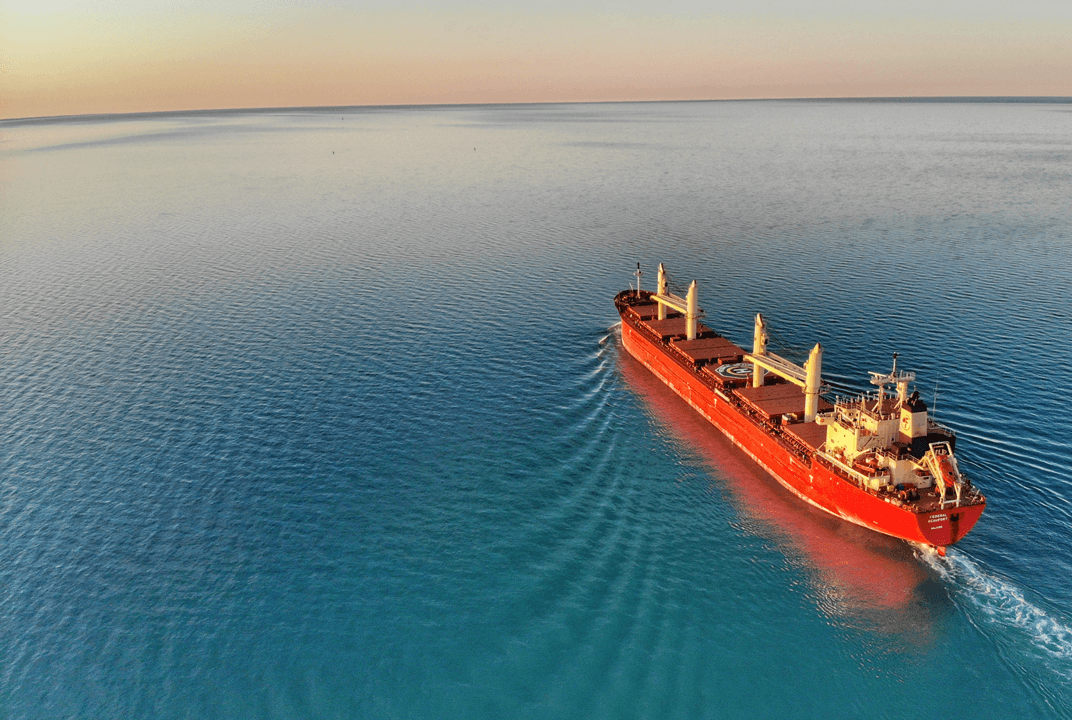Select Language
Inmarsat study reveals surge in maritime data usage as shipping industry seeks increased connectivity
Maritime
Data usage on commercial maritime vessels has jumped more than threefold since 2019, according to new communications analysis that underlines the shipping industry’s reliance on digital connectivity to enhance operating efficiency and safeguard crew welfare during a period of unprecedented disruption to seaborne trade.
The internal study undertaken by Inmarsat, the world leader in global, mobile satellite communications services, which connects more vessels than any other provider, reveals that maritime demand has continued to rise as commercial shipping recovers following the peak of the COVID-19 pandemic – with data usage among Inmarsat maritime customers rising almost 70 percent in the 12 months to mid-2022.
Analysis of data usage by leading vessel operators shows year-on-year demand for data was highest among container shipping companies, more than doubling (108%) in June 2022 compared to June 2021, while use of connectivity increased by 70% among oil tanker operators and by 47% on bulk carriers over the same period.
Ben Palmer, President of Inmarsat Maritime, said: “Maritime data usage is a leading indicator of economic activity and international trade in the shipping industry, which carries 90% of all global trade. More and more shipping companies are upgrading their satellite communications services and adopting new technologies for applications including route-planning, ship-to-shore broadband data transfers and to maximise fuel efficiency. They are also ensuring that their crews remain connected with family and friends while at sea, the mandatory requirement now recognised by the Maritime Labour Convention. Our study shows data usage is on the rise among all commercial vessel types.
“The success we’re seeing in our order book is due to our understanding of the commercial maritime industry and the needs of ship owners and operators. This appreciation led directly to the development of our unique service proposition for shipping companies, which uniquely combines two wholly-owned and operated global networks in our market leading Fleet Xpress service. Our strategy is to continue to innovate at pace, supporting the rapid digitalisation the industry is experiencing, which in turn is being driven by industry-wide targets for decarbonisation and the imperative of ensuring crew welfare.”
Inmarsat’s maritime data usage study comes amid a record order book for the company’s Fleet Xpress satellite communications systems. The Fleet Xpress installed base rose by 17% in the second quarter of 2022 compared to Q2 2021, to almost 13,000 ships, with an order book of over 1,000 vessels.
Earlier this year, Inmarsat completed technical proof of concept tests for the terrestrial 5G mesh component of its new ORCHESTRA network. The tests took place in Singapore, one of the world’s busiest container ports. ORCHESTRA provides innovative spectrum-management and connectivity technology to deliver additional data capacity at key shipping hot spots via a unique, shore-based terrestrial networks. The 5G mesh network has the potential to integrate seamlessly with Inmarsat’s geostationary satellite constellations and a highly targeted low earth orbit (LEO) fleet to deliver the lowest average latency and fastest average speeds with unique resilience of any planned global service.
“As data demand continues to grow in the shipping industry, our ORCHESTRA testing in Singapore has shown in real-world cases how to enhance ship-to-shore and ship-to-ship connectivity, including distances, range, throughput and link availability,” continued Palmer. “We are innovating with this technology because connectivity demand in key ports and shipping lanes is only going to increase further and lead to growing congestion.”
The figures on data usage and maritime orders coincide with continued planning by Inmarsat for its combination with Viasat of the US, which also serves a range of customers in the maritime sector. On completion of the transaction, the enlarged company will drive greater customer choice in B2B satellite communications serving maritime customers, as well as aviation, government and enterprise users, by providing a strong multi-layered, global architecture, and uniquely in the space sector, the ability to bring together multi-orbital satellite and terrestrial 4G and 5G assets.
further information
About Inmarsat
Inmarsat delivers world leading, innovative, advanced and exceptionally reliable global, mobile communications across the world – in the air, at sea and on land - that are enabling a new generation of commercial, government and mission-critical services. Inmarsat is powering the digitalisation of the maritime industry, making operations more efficient and safer than ever before. It is driving a new era of inflight passenger services for aviation, while ensuring that aircraft can fly with maximum efficiency and safety. Furthermore, Inmarsat is enabling the rapid expansion of the Internet of Things (IoT) and enabling the next wave of world-changing technologies that will underpin the connected society and help build a sustainable future. And now Inmarsat is developing the first-of-its-kind, multi-dimensional communications network of the future, ORCHESTRA.
In November 2021, Inmarsat and Viasat announced the planned combination of the two companies, to create a new leader in global communications. The deal is scheduled to close in the second half of 2022.
For further information, follow us: Twitter | LinkedIn | Facebook | YouTube | Instagram.
Media contacts
Jonathan Sinnatt / Matthew Knowles
Corporate Communications
Tel: +44 (0)788 960 5272 / +44 (0) 7725 476 507
press@inmarsat.com

